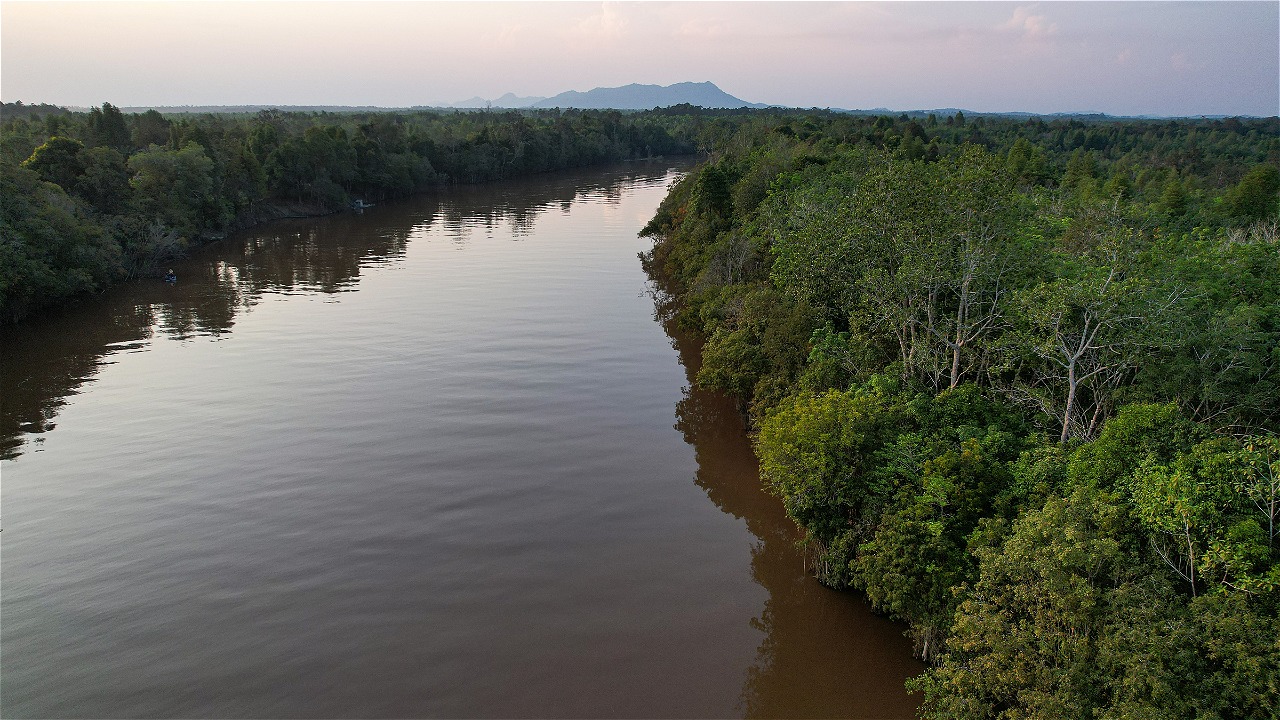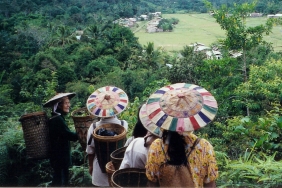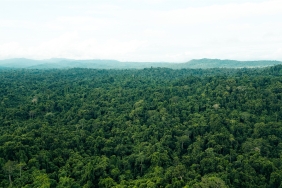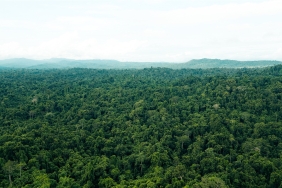MAHWEL, A YOUNG MAN FROM TANJUNG BELIT VILLAGE WHO PROTECTS THE RIVER AND FOREST
By: Rafselia Novalina & Natalia Trita Agnika
Mahwel, a friendly and energetic young man from Tanjung Belit Village, Kampar Kiri Hulu Sub-district, Kampar Regency, Riau Province, was saddened to see that the once clear Subayang River was now murky and dirty. The village where he lives is directly adjacent to the Rimbang Baling Landscape conservation area, which is one of the pockets of Sumatran tiger habitat in Riau Province and is traversed by the Subayang River.
The river is an important river for the villagers. Every day, they use the Subayang River for transportation, fishing, bathing, washing and toilet (MCK), and other domestic activities. The murky and dirty condition of the Subayang River was caused by uncontrolled human activities. For example, transportation of timber through the river, the use of chemicals in the river, and mining in the upper reaches of the river.
These irresponsible activities have also caused the forest near Mahwel's residence to become depleted due to land clearing for oil palm plantations and cutting down trees in the forest. In fact, the forest is also one of the community's economic sources by utilizing forest products such as rubber plantations, resan, rattan, wood, honey, and others.
Seeing the increasingly alarming natural conditions, Mahwel was moved to take concrete action to restore the natural sustainability of his village. Together with WWF-Indonesia Central Sumatra Program in collaboration with Yapeka (Conservation Education Foundation) and Indecon (Indonesian Ecotourism Network), Mahwel participated in conservation activities through the development of ecotourism, building biogas, conducting organic farming, awakening the spirit of the women in his village to make handicrafts from waste, and building a mobile library for children. His yard is one example of an organic garden that is already bearing fruit. "In the past, only people from this village bought the produce. Now we have orders from other villages," Mahwel said with a happy smile.
Initially, Mahwel did not get a good response from his village community in carrying out these various activities. The people of his village saw that all the activities carried out by Mahwel would not provide much benefit to their economy, their rivers were still dirty and land clearing would still continue.
Not losing his mind, Mahwel took an age-appropriate approach. He approached young people to build the Batu Dinding Waterfall ecotourism in his village. The ecotourism in less than a year began to be recognized by many people outside the village. The village management saw that this potential could be an alternative economic income for the community, so the village formed an Ecotourism Youth Association in the village to manage the waterfall ecotourism. This new tourist destination in the village is also visited by foreign tourists who conduct special interest tours as well as students and researchers who conduct biodiversity research for rivers and forests in the village.
Mahwel's passion and enthusiasm for the preservation of nature and the progress of his village is extraordinary. He even introduced a local wisdom that has been owned for generations from his ancestors, a rule to maintain the balance of the river ecosystem in his village. The tradition is known as "Lubuk Larangan."
Lubuk Larangan is a river area with certain boundaries set by local elders. The water area is managed to raise fish. Utilization of the resources stored in Lubuk Larangan is only allowed at mutually agreed times, such as twice a year, during the peak of the dry season and before Eid al-Fitr. Customary law strictly prohibits the taking of fish in Lubuk Larangan outside the specified time. Violators will be sanctioned by the customary elders.
Every tourist or outsider who visits the village is introduced to the Lubuk Larangan tradition. "Lubuk larangan is our culture in protecting the river and the forest where tigers and other animals live. If our forest is damaged, then our river is also damaged. Lubuk larangan is a binder and marker for the community that our forest is still good. Nothing can separate us from the forest and the river," said Mahwel.
The arrival of people to his village to see Lubuk Larangan is a reminder for Mahwel and his villagers that they still have forests and rivers that are well preserved. Mahwel and the people of Tanjung Belit Village have not given up on the destruction of their rivers and forests. They believe that their forest and river can still be saved.
Their optimism is shown by the fluency with which they mention the types of fish obtained in Lubuk Larangan. "Belida, kapiek, baung, tobang, tapa, and alan lelan," answered elementary school children playing in the Subayang River when asked about the types of fish found in Lubuk Larangan. To keep the local wisdom alive, Mahwel also introduced the Lubuk Larangan tradition to the public by producing T-shirts that read, "my trip mancokou ikan in Tanjung Belit." Mancouku ikan means lubuk larangan.





